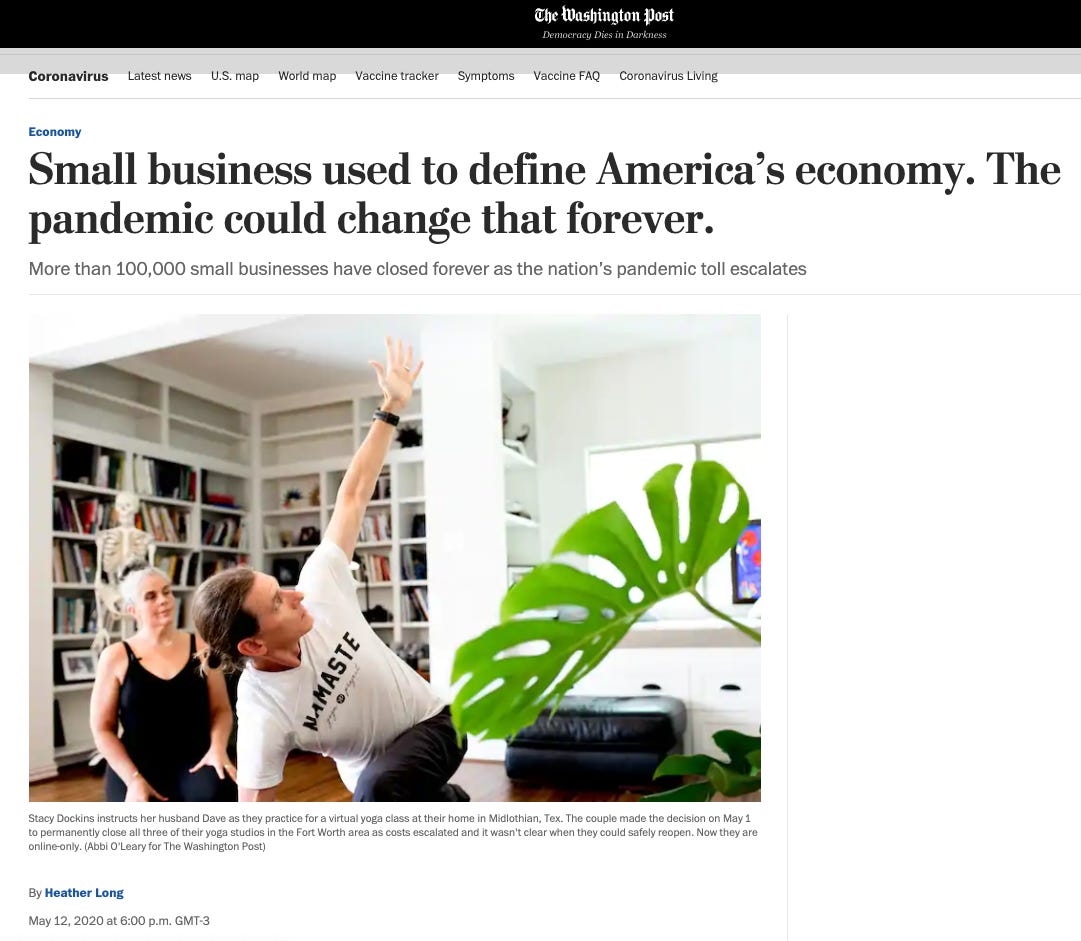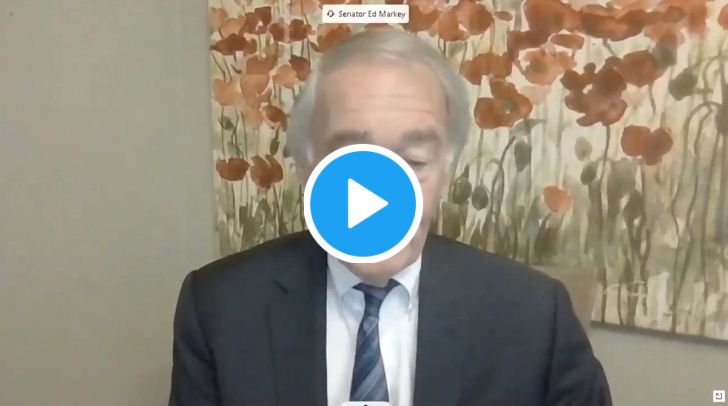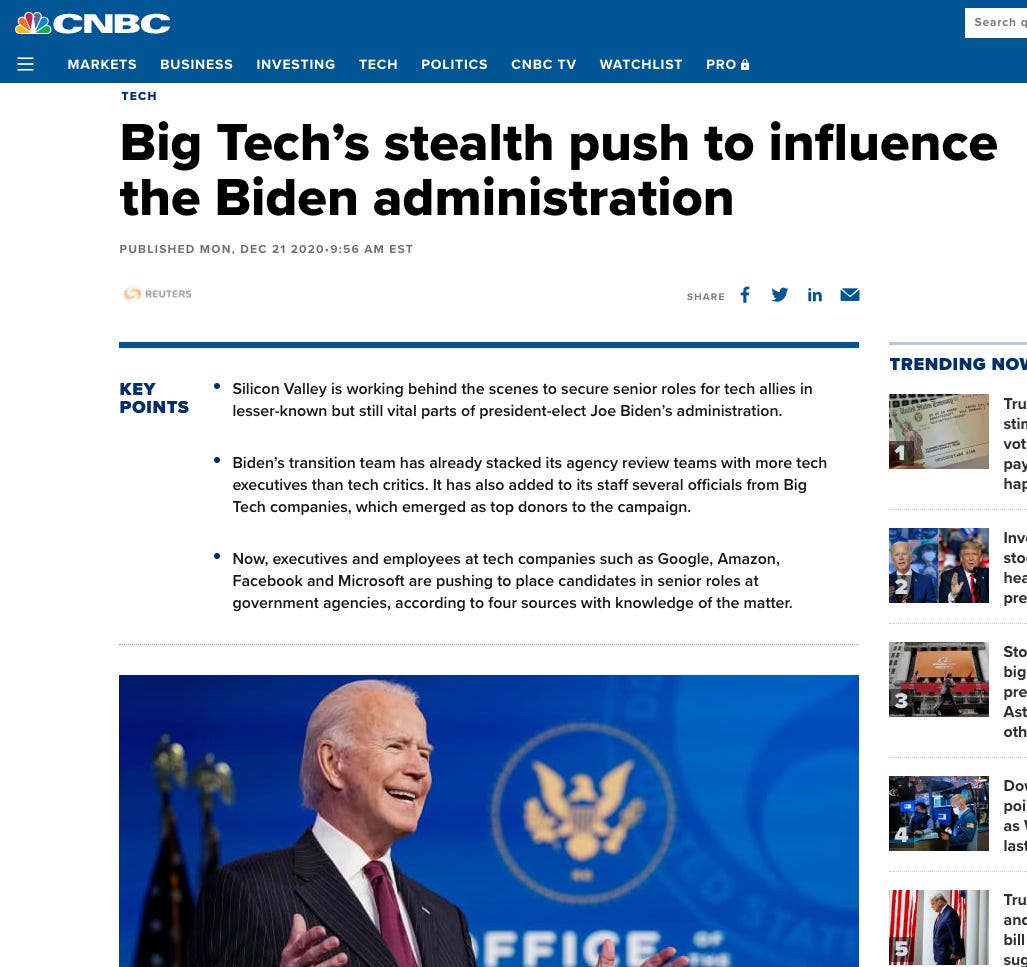https://greenwald.substack.com/p/the-threat-of-authoritarianism-in
By Glenn Greenwald
Excerpt
In 2020 alone, Trump had two perfectly crafted opportunities to seize authoritarian power — a global health pandemic and sprawling protests and sustained riots throughout American cities — and yet did virtually nothing to exploit those opportunities. Actual would-be despots such as Hungary’s Viktor Orbán quickly seized on the virus to declare martial law, while even prior U.S. presidents, to say nothing of foreign tyrants, have used the pretext of much less civil unrest than what we saw this summer to deploy the military in the streets to pacify their own citizenry.
But early in the pandemic, Trump was criticized, especially by Democrats, for failing to assert the draconian powers he had, such as commandeering the means of industrial production under the Defense Production Act of 1950, invoked by Truman to force industry to produce materials needed for the Korean War. In March, The Washington Post reported that “Governors, Democrats in Congress and some Senate Republicans have been urging Trump for at least a week to invoke the act, and his potential 2020 opponent, Joe Biden, came out in favor of it, too,” yet “Trump [gave] a variety of reasons for not doing so.” Rejecting demands to exploit a public health pandemic to assert extraordinary powers is not exactly what one expects from a striving dictator.
…
Whether the U.S. was a democracy in any meaningful sense prior to Trump had been the subject of substantial scholarly debate. A much-discussed 2014 study concluded that economic power has become so concentrated in the hands of such a small number of U.S. corporate giants and mega-billionaires, and that this concentration in economic power has ushered in virtually unchallengeable political power in their hands and virtually none in anyone else’s, that the U.S. more resembles oligarchy than anything else:
The central point that emerges from our research is that economic elites and organized groups representing business interests have substantial independent impacts on U.S. government policy, while mass-based interest groups and average citizens have little or no independent influence. Our results provide substantial support for theories of Economic-Elite Domination and for theories of Biased Pluralism, but not for theories of Majoritarian Electoral Democracy or Majoritarian Pluralism.
The U.S. Founders most certainly did not envision or desire absolute economic egalitarianism, but many, probably most, feared — long before lobbyists and candidate dependence on corporate SuperPACs — that economic inequality could become so severe, wealth concentrated in the hands of so few, that it would contaminate the political realm, where those vast wealth disparities would be replicated, rendering political rights and legal equality illusory.
But the premises of pre-Trump debates over how grave a problem this is have been rendered utterly obsolete by the new realities of the COVID era. A combination of sustained lockdowns, massive state-mandated transfers of wealth to corporate elites in the name of legislative “COVID relief,” and a radically increased dependence on online activities has rendered corporate behemoths close to unchallengeable in terms of both economic and political power.
The lockdowns from the pandemic have ushered in a collapse of small businesses across the U.S. that has only further fortified the power of corporate giants. “Billionaires increased their wealth by more than a quarter (27.5%) at the height of the crisis from April to July, just as millions of people around the world lost their jobs or were struggling to get by on government schemes,” reported The Guardian in September. A study from July told part of the story:
The combined wealth of the world’s super-rich reached a new peak during the coronavirus pandemic, according to a study published by the consulting firm PwC and the Swiss bank UBC on Wednesday. The more than 2,000 billionaires around the world managed to amass fortunes totalling around $10.2 trillion (€8.69 trillion) by July, surpassing the previous record of $8.9 trillion reached in 2017.
Meanwhile, though exact numbers are unknown, “roughly one in five small businesses have closed,” AP notes, adding: “restaurants, bars, beauty shops and other retailers that involve face-to-face contact have been hardest hit at a time when Americans are trying to keep distance from one another.”
Employees are now almost completely at the mercy of a handful of corporate giants which are thriving, far more trans-national than with any allegiance to the U.S. A Brookings Institution study this week — entitled “Amazon and Walmart have raked in billions in additional profits during the pandemic, and shared almost none of it with their workers” — found that “the COVID-19 pandemic has generated record profits for America’s biggest companies, as well as immense wealth for their founders and largest shareholders—but next to nothing for workers.”
These COVID “winners” are not the Randian victors in free market capitalism. Quite the contrary, they are the recipients of enormous amounts of largesse from the U.S. Government, which they control through armies of lobbyists and donations and which therefore constantly intervenes in the market for their benefit. This is not free market capitalism rewarding innovative titans, but rather crony capitalism that is abusing the power of the state to crush small competitors, lavish corporate giants with ever more wealth and power, and turn millions of Americans into vassals whose best case scenario is working multiple jobs at low hourly wages with no benefits, few rights, and even fewer options.
Those must disgusted by this outcome should not be socialists but capitalists: this is a classic merger of state and corporate power —- also known as a hallmark of fascism in its most formal expression — that abuses state interference in markets to consolidate and centralize authority in a small handful of actors in order to disempower everyone else. Those trends were already quite visible prior to Trump and the onset of the pandemic, but have accelerated beyond anyone’s dreams in the wake of mass lockdowns, shutdowns, prolonged isolation and corporate welfare thinly disguised as legislative “relief.”
What makes this most menacing of all is that the primary beneficiaries of these rapid changes are Silicon Valley giants, at least three of which — Facebook, Google, and Amazon — are now classic monopolies. That the wealth of their primary owners and executives — Mark Zuckerberg, Jeff Bezos, Sundar Pichai — has skyrocketed during the pandemic is well-covered, but far more significant is the unprecedented power these companies exert over the dissemination of information and conduct of political debates, to say nothing of the immense data they possess about our lives by virtue of online surveillance.
Stay-at-home orders, lockdowns and social isolation have meant that we rely on Silicon Valley companies to conduct basic life functions more than ever before. We order online from Amazon rather than shop; we conduct meetings online rather than meet in offices; we use Google constantly to navigate and communicate; we rely on social media more than ever to receive information about the world. And exactly as a weakened population’s dependence on them has increased to unprecedented levels, their wealth and power has reached all new heights, as has their willingness to control and censor information and debate.
That Facebook, Google and Twitter are exerting more and more control over our political expression is hardly contestable. What is most remarkable, and alarming, is that they are not so much grabbing these powers as having them foisted on them, by a public — composed primarily of corporate media outlets and U.S. establishment liberals — who believe that the primary problem of social media is not excessive censorship but insufficient censorship. As Sen. Ed Markey (D-MA) told Mark Zuckerberg when four Silicon Valley CEOs appeared before the Senate in October: “The issue is not that the companies before us today is that they’re taking too many posts down. The issue is that they’re leaving too many dangerous posts up.”
 Caleb Howe @CalebHowe
Caleb Howe @CalebHoweSen. Ed Markey at tech hearing says: “The issue is not that the companies before us today is that they’re taking too many posts down. The issue is that they’re leaving too many dangerous posts up.” mediaite.com/a/wyfky
October 28th 2020
107 Retweets291 Likes
As I told the online program Rising this week when asked what the worst media failings of 2020 are, I continue to view the brute censorship by Facebook of incriminating reporting about Joe Biden in the weeks before the election as one of the most significant, and menacing, political events of the last several years. That this censorship was announced by a Facebook corporate spokesman who had spent his career previously as a Democratic Party apparatchik provided the perfect symbolic expression of this evolving danger.
These tech companies are more powerful than ever, not only because of their newly amassed wealth at a time when the population is suffering, but also because they overwhelmingly supported the Democratic Party candidate about to assume the presidency. Predictably, they are being rewarded with numerous key positions in his transition team and the same will ultimately be true of the new administration.
The Biden/Harris administration clearly intends to do a great deal for Silicon Valley, and Silicon Valley is well-positioned to do a great deal for them in return, starting with their immense power over the flow of information and debate.
The dominant strain of U.S. neoliberalism — the ruling coalition that has now consolidated power again — is authoritarianism. They view those who oppose them and reject their pieties not as adversaries to be engaged but as enemies, domestic terrorists, bigots, extremists and violence-inciters to be fired, censored, and silenced. And they have on their side — beyond the bulk of the corporate media, and the intelligence community, and Wall Street — an unprecedentedly powerful consortium of tech monopolies willing and able to exert greater control over a population that has rarely, if ever, been so divided, drained, deprived and anemic.
All of these authoritarian powers will, ironically, be invoked and justified in the name of stopping authoritarianism — not from those who wield power but from the movement that was just removed from power. Those who spent four years shrieking to great profit about the dangers of lurking “fascism” will — without realizing the irony — now use this merger of state and corporate power to consolidate their own authority, control the contours of permissible debate, and silence those who challenge them even further. Those most vocally screaming about growing authoritarianism in the U.S. over the last four years were very right in their core warning, but very wrong about the real source of that danger.





